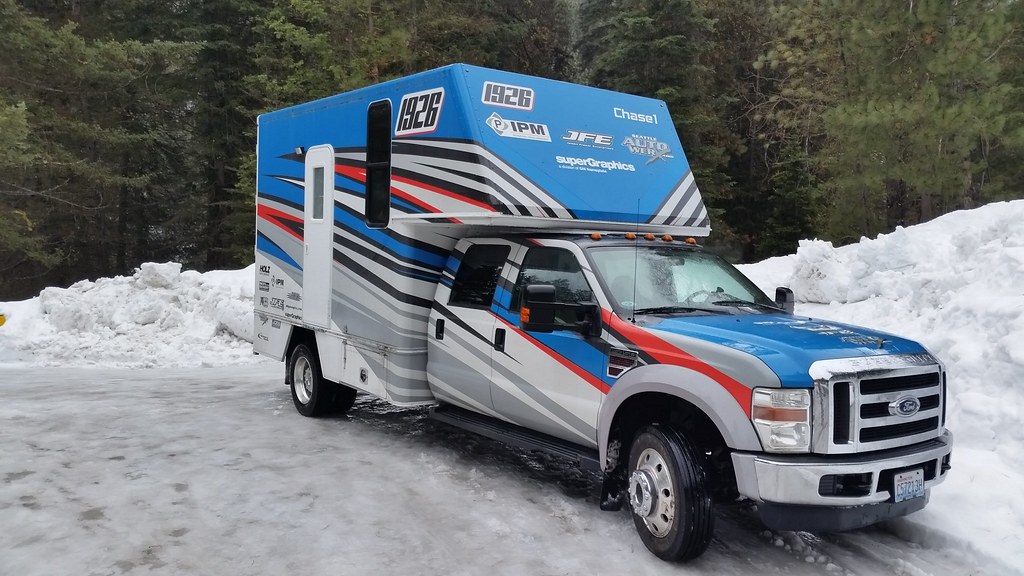But, I hate to tell, you, ....For all of you proud overweight camper owners.....you'd better hope you never get into a serious accident with them, because if so, when the overweight issue of your rig is made known, the injured party's attorney will positively eat your lunch, and plus there's a damn good chance that your own insurance company will probably deny you any liability coverage for your willful violation of your weight limits.
This is commonly stated on forums and when challenged no one has ever produced any record of anyone having liability denied from being in an accident over weight. On the contrary in the one example of a law suit involving a private vehicle overweight often referenced (a CA case) the insurance company *did* pay out. Consider that insurance pays out in DUI cases after all. Now they may cancel your coverage after the accident but they will pay out. Worth noting in the CA case over weight wasn't GVWR but rather way over GCWR (towing) by multiple thousands of pounds and speeding more than 20 mph over the limit.
A good rule to consider: Just because you can doesn't mean you should.
Indeed. Even more so for towing.
And liability wise, I strongly disagree with those who say manufacturers' GVWR ratings are less important than what your upgraded axle or suspension can hold. Let a good lawyer argue to a jury that your safe braking capacity as set by the truck's manufacturer was voluntary ignored by your built and camper load, and that that contributed to causing the accident.....and ka ching ka ching ka ching!
Good argument for towing, poor argument for over GVWR since going over GVWR has a very small impact on braking distance and in very few vehicles is GVWR at all limited by braking distance - most vehicles used for campers brake well short of the federal safety requirements. Now towing an unbraked load does directly impact braking distance in a almost linear fashion and yet again for most camping vehicles the manufacturer specifies that it is "safe" to tow at least 1000 lbs unbraked. So your proposed argument holds no water in court. Federal regulations already define a "safe" braking distance and even a mid-size overloaded by 1000 lbs will still easily meet that standard. Further the manufacture also already recommends these vehicles can safely brake a towed unbraked load of at least 1000 lbs - a condition that has far greater impact on braking distance than weight on the vehicle itself.
Last consider I've yet to find a single state that actually has any law regarding going over the *manufacturer's* GVWR. Rather they regulate going over your *registered* GVWR. Furthermore they let you register for anything you want *over* your manufacturer GVWR but typically not *under*. Why? Because they don't want people dodging fees meant to pay for roads and GAWR (related to GVWR naturally) has a strong effect (fourth power scaling) on road wear. But they could care less whether you drive over the manufacturer GVWR just as long as you've registered enough GVWR and aren't over your registered GVWR.
You can also call your insurance company and ask about this ahead of time. I and others have and the answer from multiple insurers has been that they don't care if you are over GVWR and that being so will not affect your coverage. Interested parties might want to call their company and record the answer given.
Now remove GVWR from the argument and just argue the vehicle was unsafely loaded and now there is a good case. This is actually how the law is written in most states as well - the officer can cite you for unsafely loaded vehicle, and said laws make no mention at all of GVWR. Rather it is up to the discretion of the officer to decide if a vehicle is unsafe. They can cite you even being under GVWR if they want (e.g. vehicle appears too top heavy).
Anyway - sorry to nitpick because fundamentally I agree with your advice. Don't overload the dang vehicle. Consider your safety and the safety of others around you. But the reality is the manufacturers GVWR itself doesn't really play any role in liability that I've ever been able to find in any case. That said it sounds like you've got the right kind of experience to find one and if you can find one I'd be super appreciative because I'd love to have a concrete example of a liability case tied to a private vehicle that was over GVWR.

